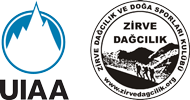| GERİ | Paylaş | 724 |
Crossing a bergschrund on a snow slope
Warning: Undefined variable $trlnk in /home/tirmanisakademi/public_html/OrjinalYayinlar/OrjinalYayinPetzl_9wEj1.php on line 112
Bu makaleyi çevirerek ülkemizde ki sınırlı kaynakları geliştirmek adına bize yardımcı olabilirsin. Yapacağınız çeviriler iletişim bilgilerinizle beraber yayınlanacaktır.
Bize ulaşın lütfen.
While traveling an easy section, an occasional technically difficult part, like crossing a bergschrund, is often complicated to protect.
Warnings
- Read the technical notice before viewing the following techniques.
- It is important to fully understand the information provided in the technical notice before using this complementary information
- Mastering these techniques requires training.
- Consult a professional before attempting to perform these techniques on your own.
The specifics of the area may offer several options:
- crossing and taking the risk of no protection
- crossing with partial protection when possible
- turning back or finding another way
The leader takes the most risk, as generally there is no chance of placing intermediate protection.
If the greatest risk is falling into the bergschrund, the counter-weight of the second, farther back, may be enough.
If the risk is falling down the slope, a belay point must protect the party.
The second stays back, away from the line of a fall.
The leader's rope does not go through the belay point, as it would be torn out in case of a fall.
The second effects a dynamic belay while anchored into the deadman.
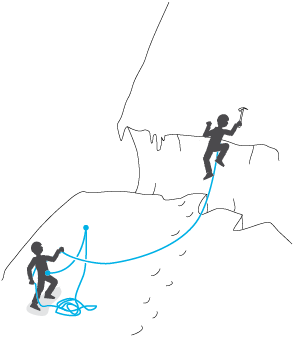
Warning: the leader will fall below his belayer without a directional anchor. VERSO and REVERSO cannot be used in this case. The second can belay from his harness with a Munter hitch or using a body belay.
The leader can reach an existing anchor point or create a temporary one in the slope.
The second is belayed with a Munter hitch or a REVERSO on the anchor.
Caution: belaying from the harness with a directional point on the anchor doubles the load on the deadman because of the pulley effect.
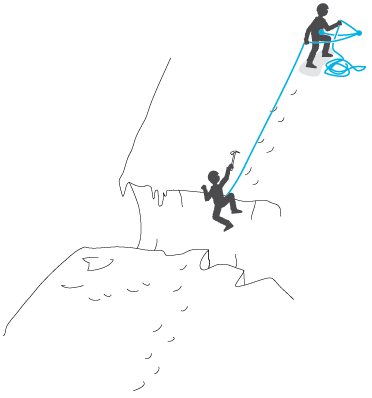
Ice axe used as a deadman
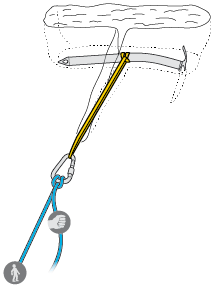
Sling around a rock horn
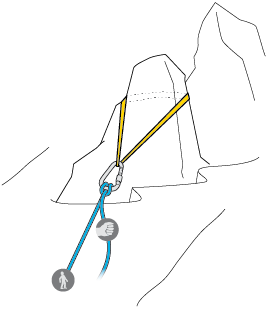
Two triangulated ice screws
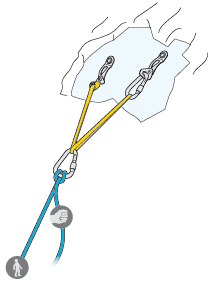
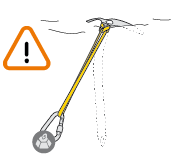
Caution: when planted vertically, the ice axe may help support one person, but is not a belay point and carries a high risk of coming out.
Warning: Undefined variable $s in /home/tirmanisakademi/public_html/OrjinalYayinlar/OrjinalYayinPetzl_9wEj1.php on line 137
Kanala abone olmak için
Hedef 200 eğitim videosu
Tırmanış konusunda her hafta yeni bir bilgi için abone olun

